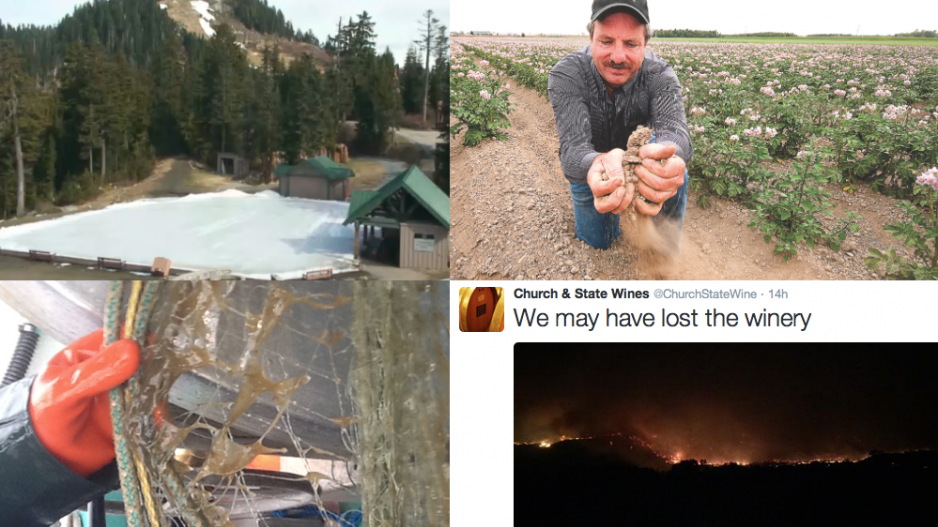By Jen St. Denis
In early 2015, Business in Vancouver reporters and editors sat down to plan out a year of special coverage of climate change and the B.C. economy in advance of climate negotiations in Paris.
Thanks to the weather in 2015, there was no shortage of stories to cover. We started off with an overview of how climate change will affect the B.C. economy over the next 100 years.
An abnormally warm winter in 2014/2015 forced ski hills to close early. In the past, ski hills faced a "bad year" once every 10 years; they will now have to plan for poor weather conditions once every four or five years. Fortunately, it looks like weather conditions this year will give most ski resorts a chance to recover.

Grouse Mountain webcam on February 27, 2015, showing the bare ski hill that forced it to close early in 2014
Some of B.C.'s largest forestry companies aren't waiting around for the province's forests to recover from the mountain pine beetle epidemic that hit the province in the 2000s. They're buying up sawmills and private timberlands in the southern United States to ensure a steady supply of wood.
Because of the warm winter, the province headed into summer with an almost non-existent snowpack, and the spring rains that normally shower the province in May and June didn't arrive.
B.C. farmers are trying to adapt to the "weird weather" they've seen in recent years, which has upset planting and harvesting schedules and caused millions of dollars in damage to crops, while the province's archaic water laws are poorly suited to handle greater demands on less water. On the other hand, warmer temperatures could be a plus for B.C. wineries if growers can figure out how to manage more frequent droughts.

Richmond farmer Bill Zylman demonstrates the effect of dry weather conditions during the summer of 2015 | Chung Chow
One of the worst wildfire seasons in the province’s history threatened homes and businesses in the Interior, while Metro Vancouver residents had to adjust to the most severe water restrictions in recent memory. Extreme weather events during the summer proved costly to several small B.C. towns and caused business disruption in Metro Vancouver.

Several wineries near Oliver had a close brush with wildfire this summer | Twitter
In northern B.C., fishermen's nets were fouled by a weird slime that was probably caused by warmer water temperatures, and fish runs were much lower than expected. On Vancouver Island, shellfish farmers are trying to adapt to corrosive ocean water that has become lethal to scallops and oysters.

Fishermen on the Nass River pulled up a harvest of slime, which the Department of Fisheries and Oceans later determined to be phytoplankton "goo" caused by warmer than normal water temperatures
As heads of state debate carbon taxes and emissions targets in Paris, we wondered whether it's even possible to move to a fossil-free future without wrecking the economy? And what are the consequences if Canada doesn't invest in the post-carbon economy? While B.C. has been a leader in both regulation and carbon pricing, critics argue the province still has a long way to go to catch up to other countries when it comes to policies and regulation.




